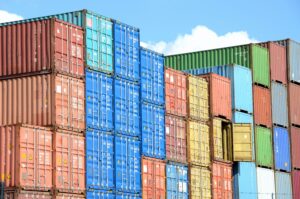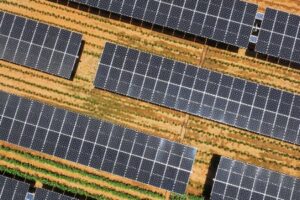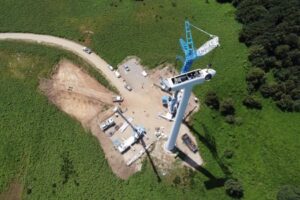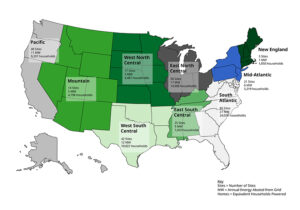Two Democratic senators urge Biden to eliminate bifacial solar tariff exemption


(Photo by Paul Teysen on Unsplash.)
U.S. Senators Jon Ossoff (D-CA) and Reverend Raphael Warnock (D-GA) are urging the Biden Administration to eliminate the tariff exemption for bifacial modules under Section 201 of the Trade Act of 1974.
“The solar manufacturing industry is at a crucial turning point, spurred by incentives in the Inflation Reduction Act. During the final two years of the 201 tariffs, it is essential that their implementation supports the growing U.S. solar manufacturing industry, which is critical to our nation’s energy security and energy independence from China,” Sens. Ossoff and Warnock wrote to President Biden. “In Georgia, companies have already invested over $2.98 billion in solar manufacturing, projecting thousands of new clean energy jobs to our states.”
In early 2022, Biden extended Trump-era tariffs on imported solar energy equipment by four years but excluded bifacial cells, which increasingly are used in utility-scale projects.
GO DEEPER: In Episode 4 of the Factor This! podcast, Abigail Ross Hopper, CEO of the Solar Energy Industries Association trade group, shares how the solar industry swayed President Joe Biden to pause new tariffs on module imports from Southeast Asia, while also boosting domestic manufacturing.
In May 2017, a group of U.S. solar panel manufacturers filed what is known as a Section 201 safeguard petition with the International Trade Commission (ITC). The petition sought global tariffs in response to what it claimed were unfair trade practices, particularly by China. The ITC unanimously found that the imports had injured U.S. solar panel producers. In January 2018, President Trump concurred with the ITC recommendation to impose a four-year “safeguard measure” on foreign solar panels. The tariffs began at 30% but declined over time to 15%.
A February report by the U.S. International Trade Commission determined that U.S. imports of bifacial modules doubled between 2020 and 2022.
In January, Senators Jon Ossoff (D-CA), Sherrod Brown (D-OH), Marco Rubio (R-FL), and Reverend Raphael Warnock (D-GA) released a letter urging President Biden to increase tariffs on Chinese-made solar module, cell, and wafer imports under Section 301 of the Trade Act of 1974.
While American solar manufacturing has boomed since the passage of the Inflation Reduction Act, the Senators say more legislation is needed to strengthen the domestic manufacturing base.
Last August, the U.S. Department of Commerce issued a final ruling in the Auxin Solar tariff case, a long-awaited decision stemming from an investigation that held up the solar industry for more than a year.
Commerce determined that solar cells and modules completed in Cambodia, Thailand, Malaysia, and Vietnam from parts and components manufactured in China are circumventing U.S. trade duties against China. The agency determined that country-wide determinations were appropriate given their findings.
In February 2022, San Jose, California-based solar manufacturer Auxin Solar alleged unfair trade practices from Chinese suppliers and asked Commerce to intervene. The Department of Commerce began investigating in March 2022 whether solar manufacturers in China were using four countries in Southeast Asia — Thailand, Malaysia, Cambodia, and Vietnam — as a conduit to evade American tariffs.




